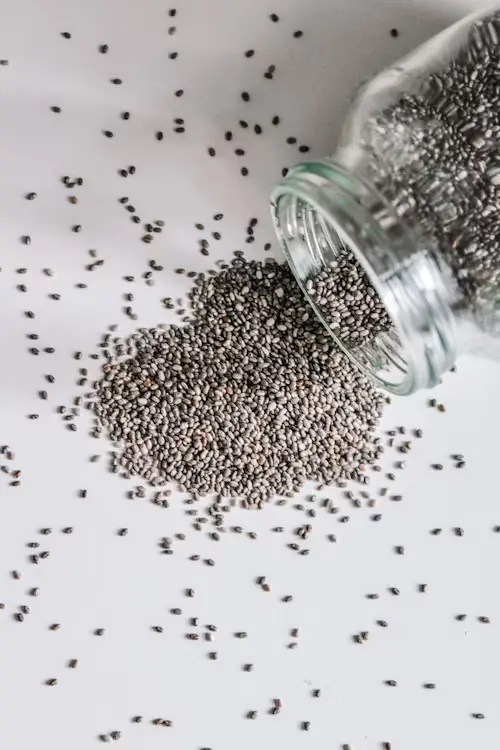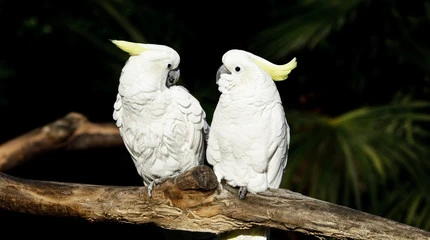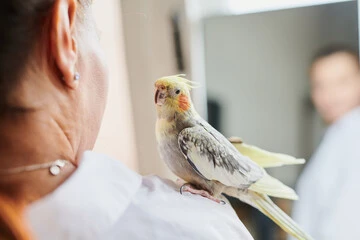Pet Bird Breeds: Your Ultimate Guide to Happy Companions
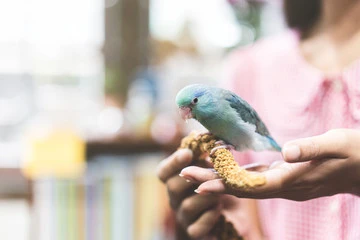
Have you ever walked into a room and felt an instant connection with a pair of bright, curious eyes? That moment when a feathered creature tilts its head and seems to look right into your soul? For many bird lovers, that’s the exact moment they knew—they had to welcome a bird into their home. But with so many species, sizes, and personalities out there, how do you choose the right one?
Selecting a pet bird isn’t just about picking the prettiest or the most talkative. It’s about finding a companion whose needs align with your lifestyle, space, and experience. Whether you’re a first-time bird owner or looking to expand your flock, understanding the different pet bird breeds is the first step toward a joyful, lasting relationship.
Table of Contents
What Are the Most Common Pet Bird Breeds?
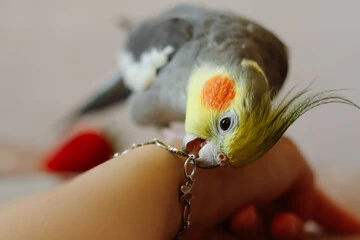
When people think of pet birds, a few species instantly come to mind. These are the birds you’ll often see in homes, pet stores, and even featured in movies. They’re popular for good reason—they tend to be adaptable, social, and well-suited to life with humans.
Budgerigar (Budgie/Parakeet)
Budgies are often the gateway bird for many aspiring owners. Small, colorful, and incredibly intelligent, these little parrots pack a lot of personality into a tiny body.
- Size: 6–8 inches
- Lifespan: 5–10 years (with proper care, some live even longer)
- Temperament: Playful, social, and highly trainable
- Noise Level: Moderate; they chirp and can learn to mimic words
- Best For: Beginners, families with children, and those living in apartments
Budgies thrive on interaction. If you’re looking for a bird that’s easy to care for but still eager to engage, a budgie might be your ideal choice. For more on birds suited to beginners, check out our guide on the best pet birds for beginners.
Cockatiel
If you want a bird with a big personality and a sweet disposition, look no further than the cockatiel. Known for their crests and charming whistles, cockatiels are affectionate and often form strong bonds with their owners.
- Size: 12–13 inches
- Lifespan: 15–20 years
- **Temperament Gentle, curious, and loving
- Noise Level: Moderate; they whistle and chirp rather than scream
- Best For: Families, singles, and first-time bird owners
Cockatiels enjoy being out of their cage and participating in household activities. They’re not usually talkers, but they’ll serenade you with cheerful tunes.
Lovebird
Don’t let the name fool you—lovebirds can be fiercely independent, though they are social and often do best in pairs. These small parrots are known for their vibrant colors and lively behavior.
- Size: 5–7 inches
- Lifespan: 10–15 years
- Temperament: Energetic, playful, can be nippy if not trained
- Noise Level: High-pitched chirps; can be noisy
- Best For: Experienced owners or those willing to dedicate time to training
Lovebirds are active and need plenty of toys and mental stimulation. They may be small, but they have big personalities.
Exploring Exotic Pet Bird Breeds
If you’re drawn to the extraordinary, exotic bird breeds offer stunning beauty, remarkable intelligence, and unique behaviors. These birds often require more experience, space, and commitment—but the reward is a truly one-of-a-kind companion.
African Grey Parrot
Renowned as one of the most intelligent bird species, the African Grey is a master of mimicry and problem-solving. Their ability to understand and use context with words is unparalleled in the bird world.
- Size: 12–14 inches
- Lifespan: 40–60 years
- Temperament: Sensitive, intelligent, can be shy or cautious
- Noise Level: Moderate; they talk and mimic sounds accurately
- Best For: Experienced owners who can provide mental enrichment
African Greys need a lot of social interaction and mental challenges. They’re not a bird that enjoys being left alone for long periods.
Macaw
When you picture a parrot, you might imagine a macaw—large, majestic, and brilliantly colored. These birds are social, affectionate, and have a powerful presence.
- Size: 30–40 inches (depending on species)
- Lifespan: 50–80 years
- Temperament: Outgoing, playful, needs strong bonding
- Noise Level: Very loud; capable of loud calls and screams
- Best For: Experienced owners with ample space
Macaws require a huge commitment in time, space, and resources. But for the right person, they are incredibly rewarding companions.
Cockatoo
Cockatoos are known for their dramatic crests and emotional depth. They form very strong bonds with their owners and can be incredibly cuddly—sometimes to the point of neediness.
- Size: 12–24 inches (varies by species)
- Lifespan: 40–70 years
- Temperament: Affectionate, demanding, prone to anxiety if neglected
- Noise Level: Very loud; known for screaming
- Best For: Owners who can provide near-constant companionship
Because of their emotional needs, cockatoos are not recommended for beginners. They thrive in environments where they get plenty of attention.
Best Small Pet Bird Breeds for Limited Spaces
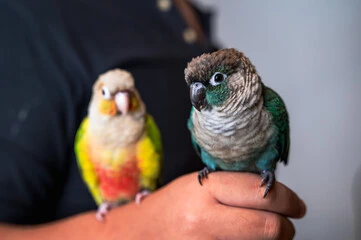
Not everyone has room for a large aviary, but that doesn’t mean you can’t enjoy bird ownership. Small birds are perfect for apartments, small homes, or anyone who prefers a more compact companion.
Finch
Finches are delightful little birds that are often kept in small flocks. They’re visually engaging and relatively low-maintenance compared to parrots.
- Size: 3–5 inches
- Lifespan: 5–10 years
- Temperament: Active, social with other finches, but not typically hand-tame
- Noise Level: Soft chirping; pleasant background noise
- Best For: Those who want to observe rather than handle their birds
Finches are best enjoyed in pairs or groups. They don’t require out-of-cage time, making them ideal for people who want pet birds without the need for constant interaction.
Parrotlet
Think of a parrotlet as a miniature parrot with a big attitude. These tiny birds are fearless, curious, and full of energy.
- Size: 4–5 inches
- Lifespan: 15–20 years
- Temperament: Bold, playful, can be territorial
- Noise Level: Moderate; chirpy and sometimes loud for their size
- Best For: Owners who want a parrot personality in a small package
Parrotlets can be trained and enjoy interacting with their owners. They’re a great option if you want a small bird that acts like a large one.
Canary
Known for their beautiful songs, canaries are primarily kept for their vocal abilities rather than companionship. They are visually stunning and relatively easy to care for.
- Size: 4–5 inches
- Lifespan: 7–12 years
- Temperament: Independent, not typically hand-tame
- Noise Level: Melodic singing (males); pleasant and musical
- Best For: Those who appreciate birdsong and visual beauty
Canaries are perfect if you want a bird that adds beauty and song to your home without needing constant attention.
Understanding Pet Bird Breed Characteristics
Before bringing a bird home, it’s crucial to understand what makes each breed unique. Their needs go beyond diet and cage size—their behavior, social needs, and vocalizations play a huge role in your daily life.
Social Needs and Temperament
Some birds, like cockatiels and budgies, thrive on social interaction and can become depressed if left alone too long. Others, like finches and canaries, are more independent.
If you’re away from home often, a less socially dependent bird might be a better fit. For more on this, explore our article on bird behavior.
Noise Level Considerations
Birds vocalize—it’s what they do. But the volume and frequency vary greatly. While canaries sing melodiously, macaws and cockatoos can be ear-piercingly loud.
If you have close neighbors or sensitivity to noise, you might prefer one of the quiet pet birds.
Lifespan and Commitment
Many people underestimate how long birds live. While a finch may be with you for 5–10 years, a macaw or cockatoo can be a lifelong companion—sometimes outliving their owners.
This isn’t a decision to take lightly. It’s a long-term commitment that requires planning and dedication.
Space and Housing Requirements
Larger birds need larger cages—and plenty of out-of-cage time. Even small birds need room to fly and play. Always ensure you can provide an appropriately sized environment for your chosen breed.
Comparison Table: Popular Pet Bird Breeds at a Glance
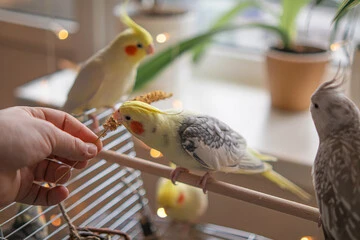
| Breed | Size | Lifespan | Noise Level | Best For |
|---|---|---|---|---|
| Budgerigar | 6–8 inches | 5–10 years | Moderate | Beginners, families |
| Cockatiel | 12–13 inches | 15–20 years | Moderate | Families, first-time owners |
| African Grey | 12–14 inches | 40–60 years | Moderate | Experienced owners |
| Macaw | 30–40 inches | 50–80 years | Very loud | Experienced, spacious homes |
| Finch | 3–5 inches | 5–10 years | Soft chirping | Observers, small spaces |
| Parrotlet | 4–5 inches | 15–20 years | Moderate | Small bird enthusiasts |
| Canary | 4–5 inches | 7–12 years | Melodic singing | Song lovers |
FAQ About Pet Bird Breeds
What is the best pet bird breed for beginners?
Budgies and cockatiels are often recommended for beginners due to their manageable size, friendly temperaments, and relatively simple care requirements. Always do your research before bringing any bird home.
Are there quiet pet bird breeds?
Yes! Finches, canaries, and dove breeds are generally quieter than parrots. If you need a quiet bird, avoid species known for loud calls, like cockatoos or macaws.
How do I choose between a small or large bird?
Consider your space, time, and experience. Small birds are great for limited spaces and first-time owners, while larger birds often require more commitment, space, and expertise.
What’s the average cost of owning a pet bird?
Costs vary widely. Initial setup (cage, toys, perches) can range from $200–$1000+. Ongoing costs include food, vet care, and replacing toys. Larger birds are generally more expensive to maintain.
Can pet birds be trained?
Absolutely! Many birds, especially parrots like budgies, cockatiels, and African Greys, are highly trainable. Positive reinforcement works wonders.
Conclusion: Find Your Perfect Feathered Match
Choosing a pet bird is a deeply personal decision—one that will impact your life for years to come. Whether you’re drawn to the cheerful chatter of a budgie, the stunning beauty of a macaw, or the melodic song of a canary, there’s a bird out there that’s perfect for you.
Remember, each pet bird breed comes with its own set of characteristics, needs, and joys. Take your time, do your research, and be honest about what you can provide. The right bird will bring endless joy, companionship, and a little bit of magic into your home.
Have you found your ideal bird breed? Share your thoughts or questions in the comments below—we’d love to hear from you! And if you’re ready to learn more, explore our other resources on bird care and behavior.

